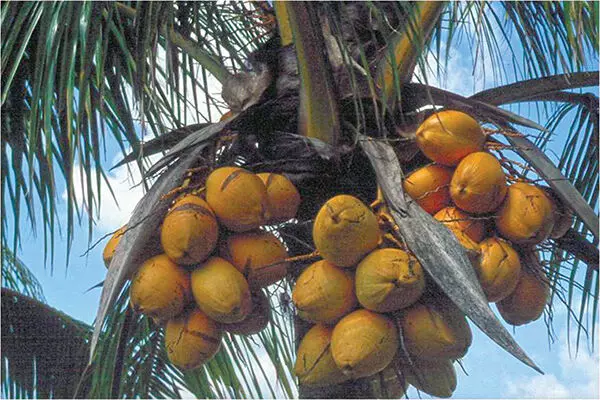

Now, cloning coconut trees; Belgian scientists claim breakthrough
text_fieldsThiruvananthapuram: Scientists at a top Belgian university have claimed a breakthrough in cloning coconut, whose palms are known for their slow growth and thought difficult to clone. All the same, it is the sixth most cultivated fruit on earth.
The discovery of scientists at K U Leuven and the Alliance of Bioversity International and CIAT (The Alliance), multiplying seedlings faster and conserving coconut genetic resources for the long-term, is expected to help coconut farmers in countries like India address the challenges in the sector, including Lethal Yellowing Disease, climate change, rising sea levels and outdated plantations.
"This will help preserve coconut palm biodiversity and meet increasing demand for coconuts and derived products", the scientists said in a statement.
"Nobody thought we could do it. But we persevered", said Bart Panis of the Laboratory for Tropical Crop Improvement (KU Leuven) and the Alliance.
Panis and PhD student Hannes Wilms did it, drawing inspiration from another fruit variety: the banana.
From his work on banana plants, Panis suspected that a certain plant hormone could also be successful in coconut palms.
According to Panis, the major impediment for an easy cloning is the fact that coconut plants do not form side shoots and their entire energy is put into one shoot which has to grow fast and tall.
The scientists first extracted the coconut palm embryo from the coconut for their research. They then applied the plant hormone to the meristem - or growing point - contained in the four month old plantlets. In this way, they succeeded in having the plantlet form not only one shoot, but several side shoots. They managed, in turn, to split these shoot clusters and allow new side shoots to grow on them as well.
Their findings were published in Scientific Reports in its September edition.
In an e-mail interview to PTI, Wilms, the co-author from KU Leuven, said cloning the coconut palms is not as easy as one may think.
"But our research found that with the right treatment, the palm can be forced to branch," Wilms said.
The researcher said the palm does not grow in Belgium, but since "we are the laboratory of tropical crop improvement, we have a lot of experience working with tropical crops". The project was initially presented as something challenging, "which we of course wanted to tackle." "The initial aim of our project was to develop a cryopreservation protocol for the safe long term preservation of coconut genetic resources. For this we need, however, a lot of coconut shoots. Since there are no coconut shoots available in Belgium, we had to develop a clonal propagation technique. And the coconut was presented to us as a challenging crop which was not cloneable via classical methods. But my promoter who helped start the project said we'll accept the challenge", Wilms said.
On the application's advantage to coconut growers, he said the method they developed now would be very interesting for the micropropagation of hybrid palms or rare coconut palms such as the "thairu thengai" (curd coconut in India). But of course it could be used to propagate existing tall and dwarf varieties.
Asked how the research on coconut palm would benefit farmers, Wilms said Elite Coconut palms that are resistant to diseases/drought tolerant or tasty are expensive to plant, but could be worth it for the farmer in the long term.
The scientists said that their primary goal was to safeguard the coconut tree's genetic diversity as efficiently as possible.
Noting that it is very crucial to preserve as many varieties of the coconut plant as possible because each variety has specific characteristics, they said some are resistant to a particular disease or have a better oil composition, while others are more resistant to heat, drought or storms.
"There's a huge demand for coconut. The existing plantations are old and need to be replanted in the short term," Panis said.
"So our technique meets the great demand for healthy plant material", he added.
The researchers have now submitted a patent application.
The major need for the scientists is additional funds to protect the patent and further refinement of the technique. Researchers are also aware that coconut cultivation is mostly done by small farmers and protecting their right to purchase the plant material at a reasonable prices will be a key element in the patent licence.
(Based on PTI feed with minor edits)





